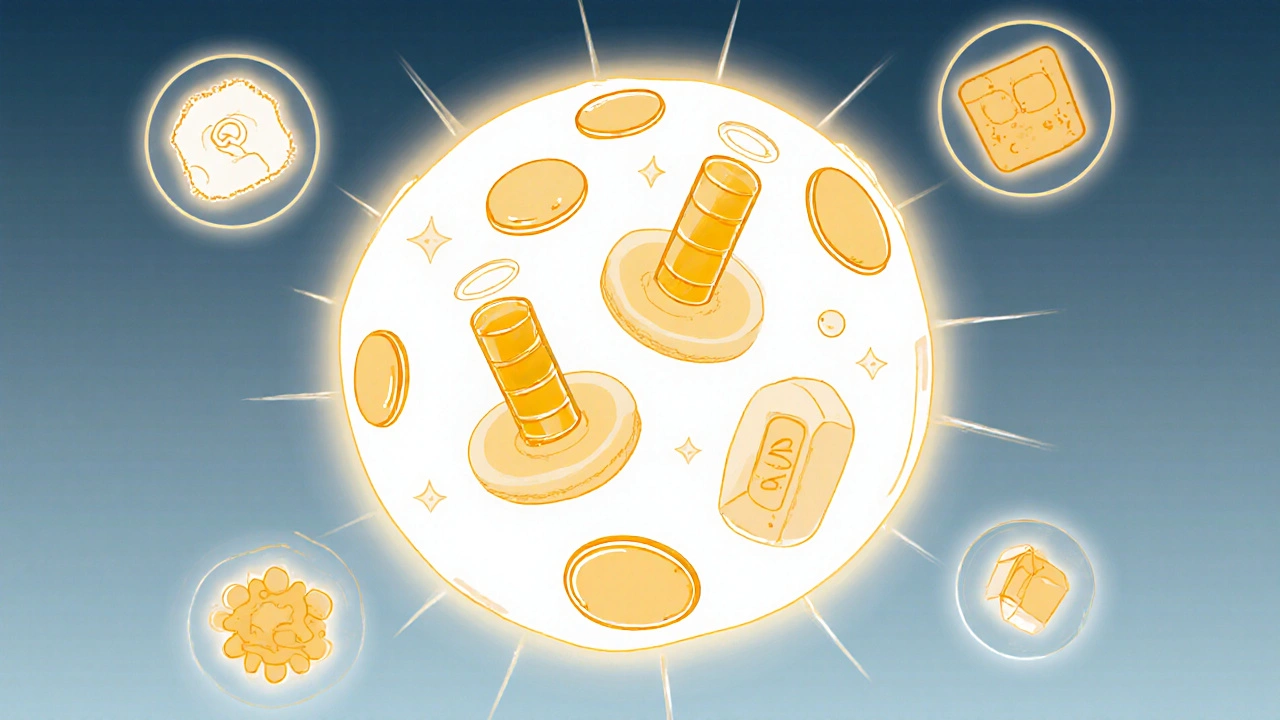Idebenone: What It Is, How It Works, and What Research Says
When you hear Idebenone, a synthetic analog of coenzyme Q10 designed to support cellular energy and fight oxidative stress. Also known as hydroxydecylubiquinone, it’s not a vitamin or supplement you’ll find in every health store—but it’s showing up in clinical studies for conditions like mitochondrial disorders and neurodegenerative diseases. Unlike natural antioxidants, Idebenone is engineered to be more stable and better absorbed by cells, especially in tissues that need high energy like the brain and heart.
It works by stepping in where your body’s own antioxidants fall short. Think of your cells as tiny power plants. When they burn fuel to make energy, they produce waste—free radicals—that damage the system over time. Idebenone helps neutralize that waste before it harms mitochondria, the actual power generators inside your cells. This is why it’s being tested for diseases like Leber’s hereditary optic neuropathy, where damaged mitochondria cause vision loss. It’s also studied in Friedreich’s ataxia, a rare genetic disorder that affects movement and coordination. In both cases, the goal isn’t to cure the disease, but to slow the damage by keeping cells alive longer.
Compared to coenzyme Q10, a naturally occurring compound critical for energy production and antioxidant defense, Idebenone is smaller and more easily absorbed by cells, especially in low-oxygen environments. That’s a big deal for brain tissue, which is sensitive to energy shortages. Some trials suggest it crosses the blood-brain barrier more effectively than CoQ10, making it a stronger candidate for neurological conditions. It’s also been looked at for Alzheimer’s, Parkinson’s, and even muscle wasting in aging—but results are mixed, and it’s not approved as a standard treatment anywhere yet.
What’s clear is that Idebenone isn’t a miracle cure. It’s a targeted tool, used mostly in research settings or under doctor supervision. You won’t find it in most over-the-counter supplements, and if you do, the dose might be too low to matter. The real value lies in its role as a precision antioxidant—helping specific cells that are under stress, not just sweeping the whole body clean. That’s why the studies you’ll find below focus on patients with specific conditions, not general wellness. If you’re looking for broad anti-aging benefits, other antioxidants might be simpler. But if you’re dealing with a mitochondrial issue or a neurodegenerative condition, Idebenone might be worth discussing with your doctor.
Below, you’ll find real studies and comparisons that dig into how Idebenone performs against other treatments, what side effects people actually report, and whether it’s worth the cost. No fluff. Just what the data shows.

